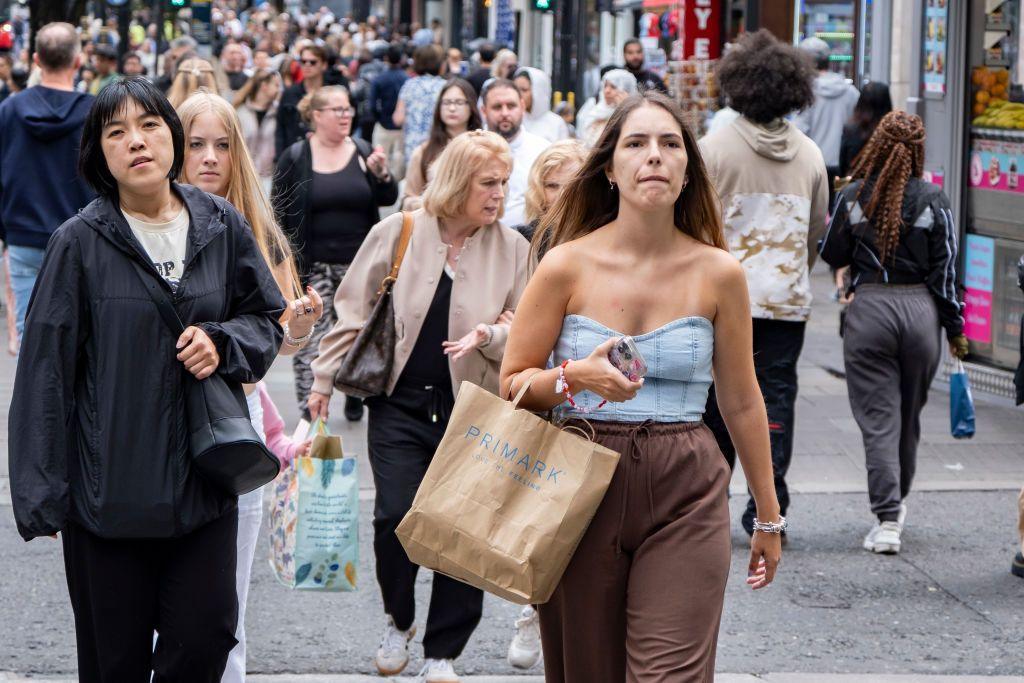Oxford St traffic ban will be challenging - council
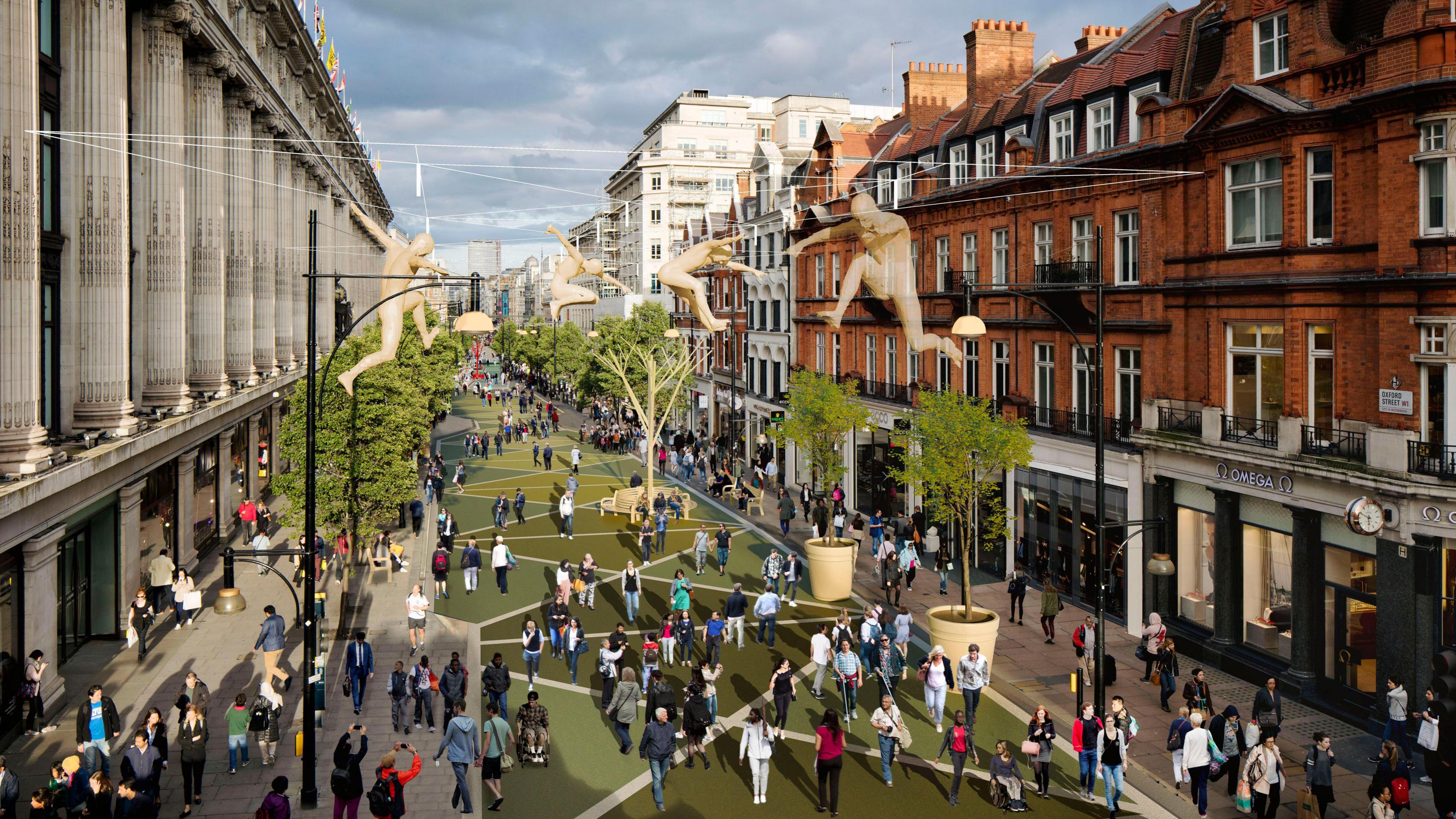
The mayor's plan would ban traffic from the world-famous street
- Published
There are "substantial practical challenges" for the pedestrianisation of Oxford Street, the leader of Westminster City Council has warned.
Adam Hug said that residents, businesses, shoppers and visitors need to be properly considered in the proposal from Sadiq Khan.
The London mayor plans to ban traffic from part of Oxford Street between Marble Arch and Oxford Circus, which he says is backed by the new Labour government.
He previously attempted to pedestrianise part of the world-famous shopping street in 2018, but the plan was blocked by the then-Conservative local authority.
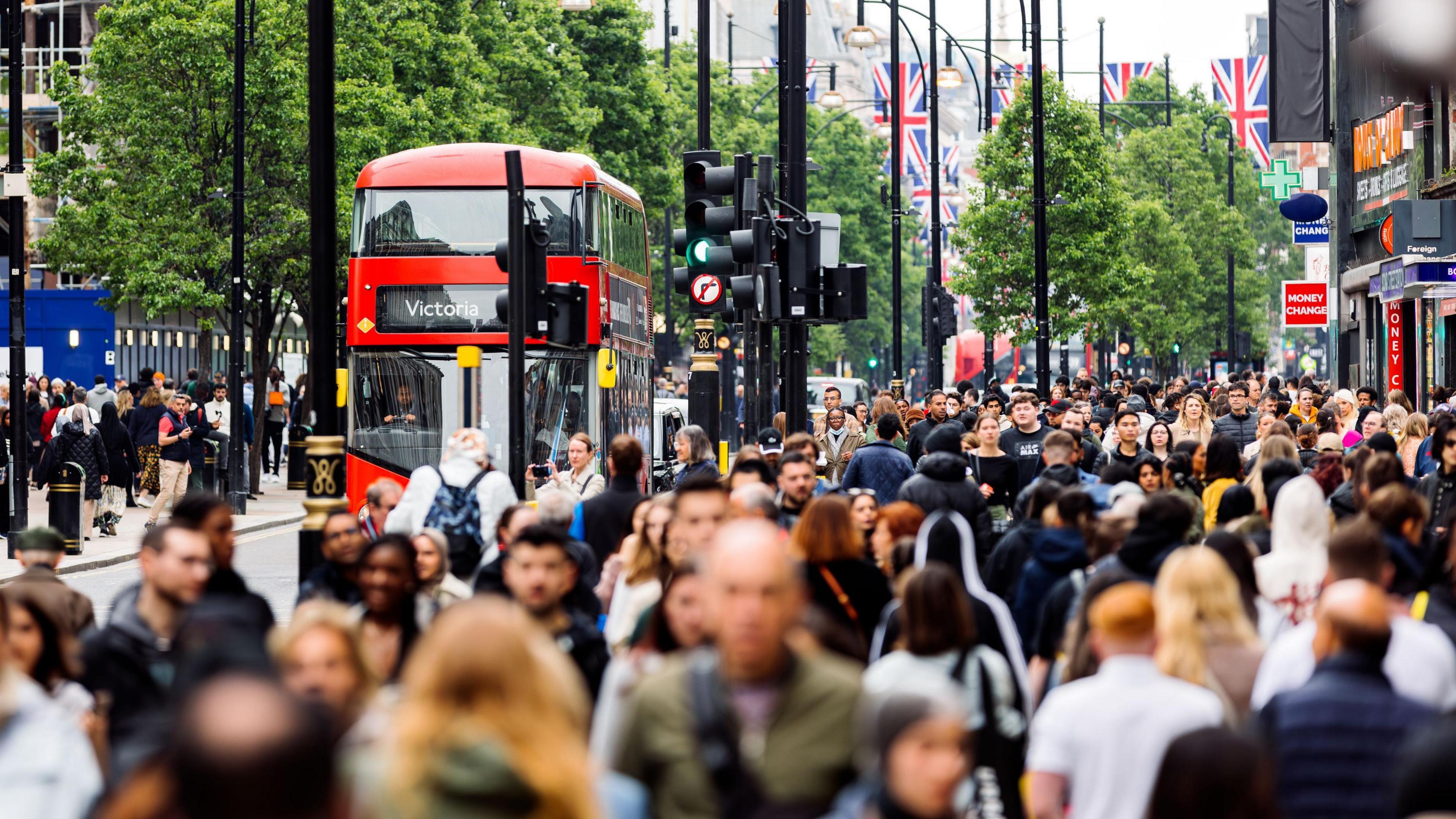
The mayor of London said he wants to make the street more attractive to its half a million visitors each day
Mr Hug, Labour leader of Westminster City Council, has written to the Deputy Prime Minister and Mayor of London setting out 10 key areas of concern.
The authority already had its own £90m "shovel ready" plans for developing the street, which were popular with the community and local businesses.
These included wider footpaths, more seating and trees being planted - but stopped short of introducing traffic restrictions.
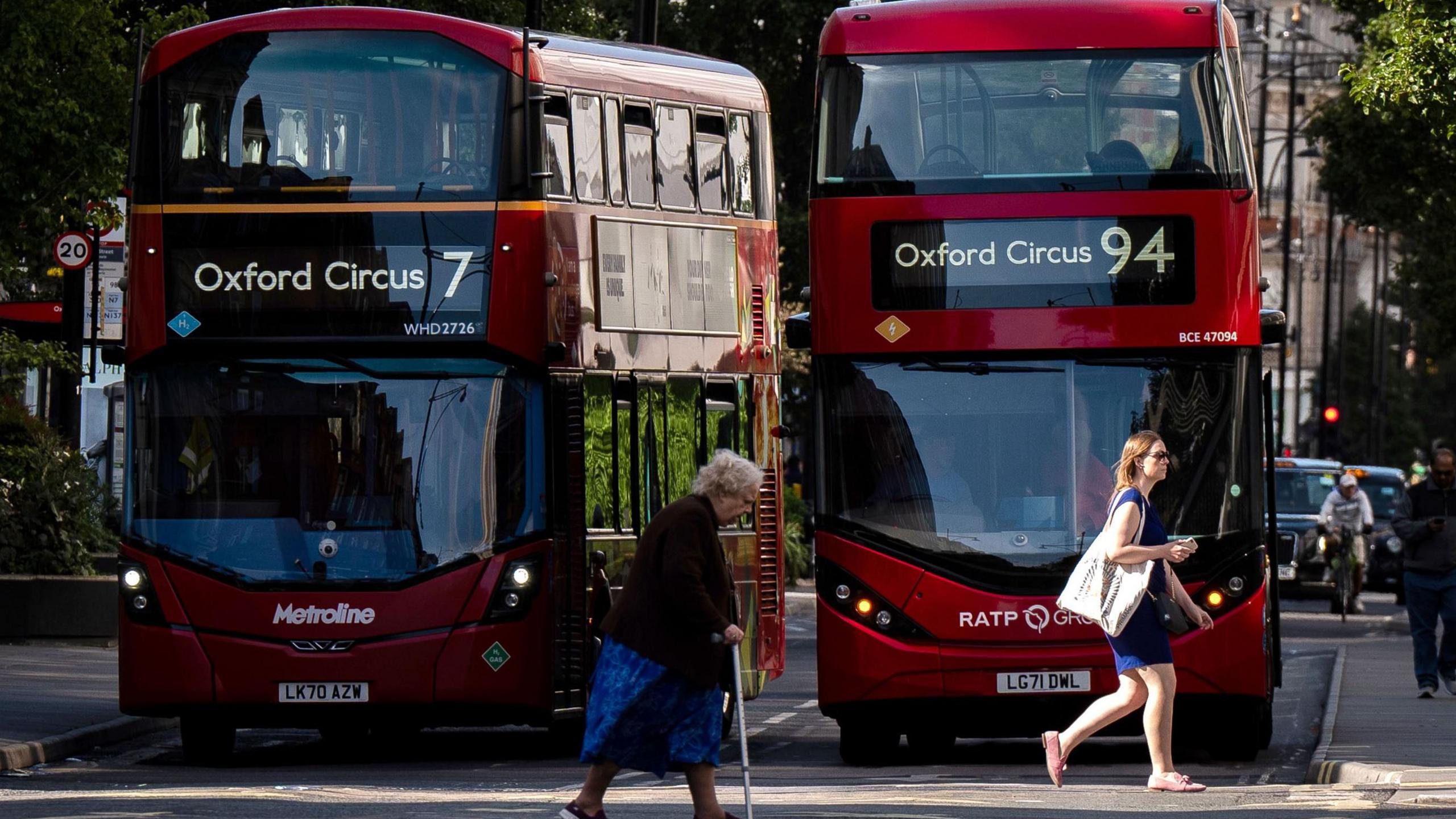
Several bus services are currently routed along Oxford Street
Mr Hug said: "The substantial practical challenges for delivering pedestrianisation are well known and will need to be thoroughly addressed to ensure any future transformation of the street works properly and does so in the interests of everyone who has a long-term stake in the West End, including local residents.
"There is a common myth that only the 'well-heeled' live in the West End, but the reality is far different with a unique mix of communities, including thousands of council and housing association tenants across Soho, Fitzrovia, Mayfair and Marylebone.
"We will ensure the voices of our residents are heard by the mayor and government, while also addressing the concerns of local businesses and the many others who make Oxford Street come alive as the nation's high street.
"The devil will be in the detail and our concerns need to be properly addressed before any final decisions are made."
Some of the council's other concerns include:
The impact of displaced traffic on the wider area
Keeping shoppers safe from terrorism in a pedestrianised location
Improving cycling
Future management of the street
Compensation for the council's investment in its own scheme for the street
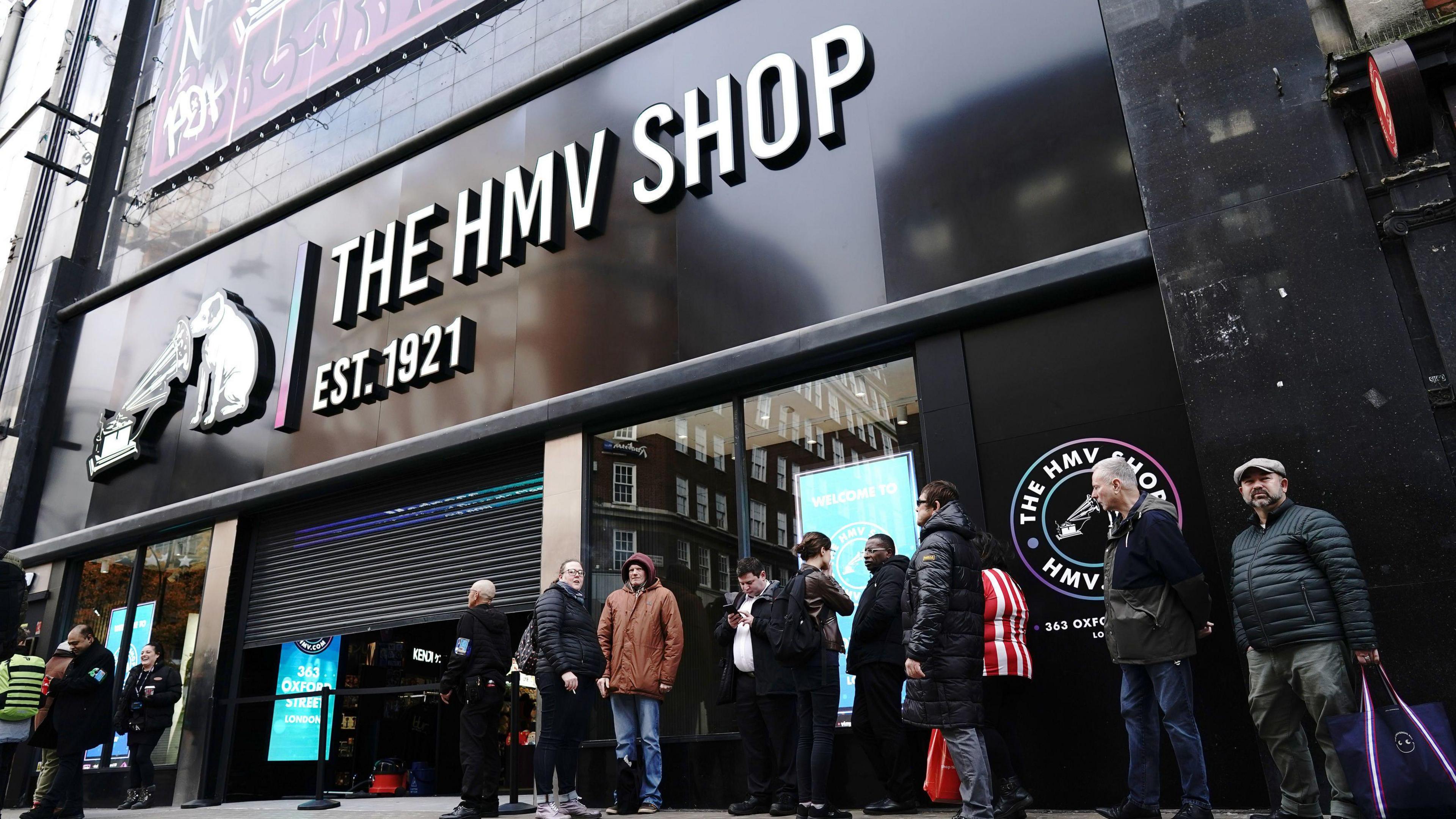
HMV returned to Oxford Street in November 2023, after shutting in 2019
Oxford Street is one of the world's busiest shopping areas, with about half a million visitors on average every day.
Mr Khan said he believed the plans would help revive the area.
Big-name shops such as Debenhams and House of Fraser have left the street, however new and returning brands include HMV, Ikea and Waterstones.
The mayor said he was working with the new Labour government, retailers and businesses to restore the street to its "former glory".
The project is expected to cost about £150m, with the mayor's office hoping it could be paid for by a combination of local businesses, new revenue streams and private funders.
The plans also include the addition of planters, trees, water features and seating.
The mayor's office said there would be access for disabled people but the plans had not been finalised.
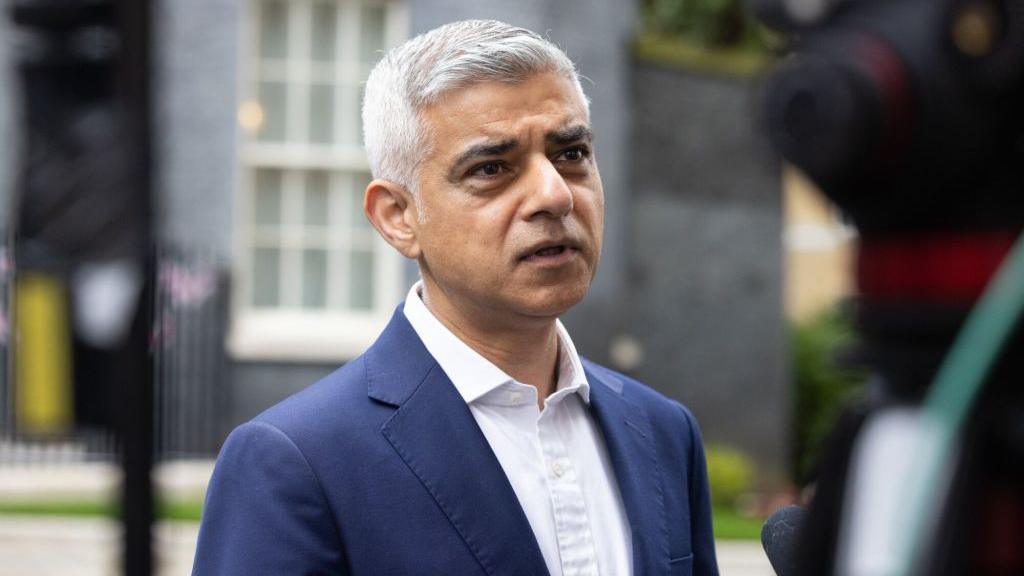
Sadiq Khan will need to be given new powers by government for the plan
Greater mayoral powers
The new plan depends on the government awarding the mayor new planning powers to create a "Mayoral Development Area" around Oxford Street.
This would mean Mr Khan would take control of the area from Westminster City Council, although the boundaries of this proposed area are not clear.
The government currently supports his proposal, Mr Khan said.
The proposal appears similar to those submitted by Mr Khan in 2017, which were later thrown out by the local authority as they lacked support from local residents.
Listen to the best of BBC Radio London on Sounds and follow BBC London on Facebook, external, X, external and Instagram, external. Send your story ideas to hello.bbclondon@bbc.co.uk, external
- Published17 September 2024

- Published17 September 2024
